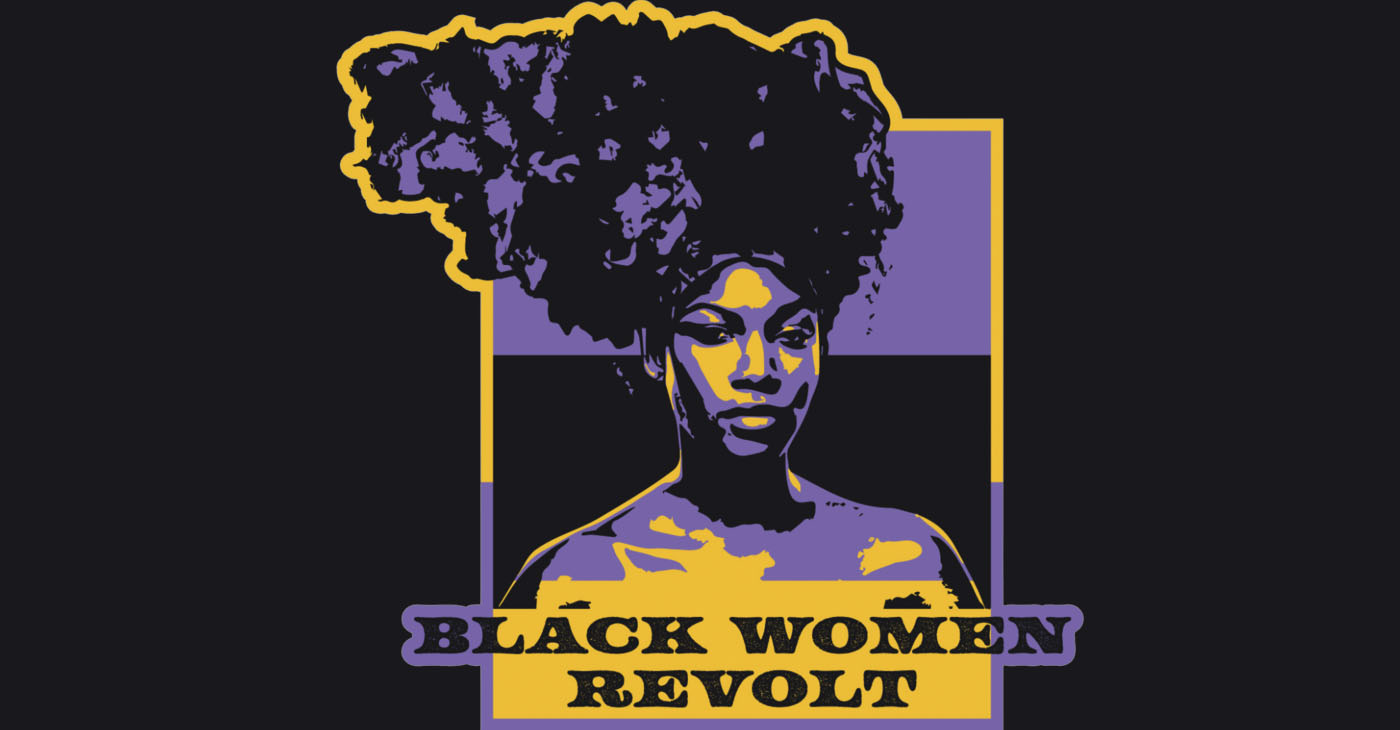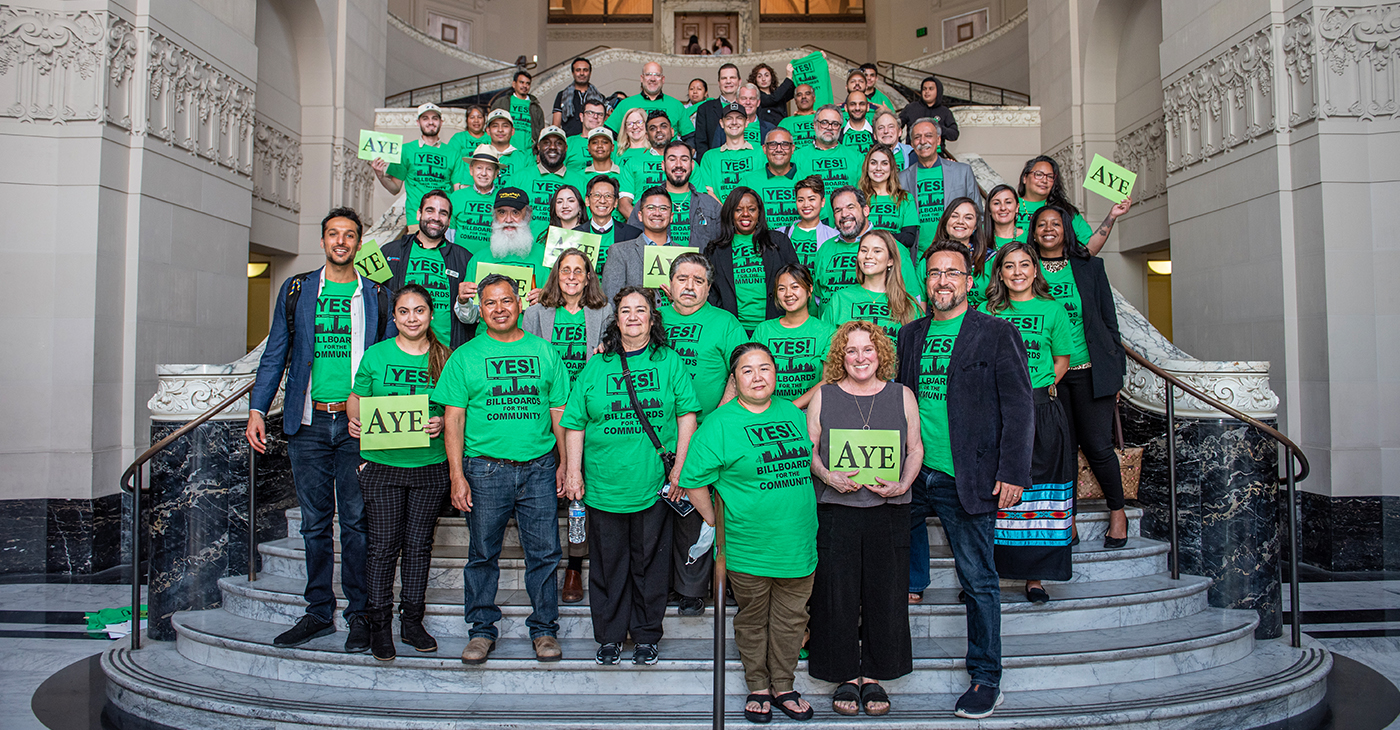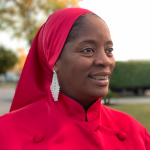Activism
Black Women Revolt: Bay Area Org Gets to Grassroots of Domestic Violence
Considering itself a grassroots community activist movement, Black Women Revolt was founded in 2020. The group’s founders, Geoffrea Morris and Lyn-Tise Jones — who are sisters — say they both felt a strong desire to set up an organization in San Francisco offering help to Black women dealing with the suffering and setbacks domestic violence can cause.

By Charlene Muhammad | Special to the Oakland Post
In the San Francisco Bay Area, the Black Women Revolt Resource Center is dedicated to creating awareness about domestic violence and solving it — with a specific focus on women of color.
Considering itself a grassroots community activist movement, Black Women Revolt was founded in 2020. The group’s founders, Geoffrea Morris and Lyn-Tise Jones — who are sisters — say they both felt a strong desire to set up an organization in San Francisco offering help to Black women dealing with the suffering and setbacks domestic violence can cause.
“I think that Black women and Black families in particular really suffer in silence,” said Black Women Revolt Resource Center’s executive director Paméla Tate, an author and domestic abuse awareness advocate.
“And that’s not to say that other Brown families don’t. Latino families do, as well as Asian families. But, particularly, African Americans here in the U.S. have suffered with domestic abuse and intimate partner violence, since we were brought to this continent,” Tate continued.
Morris was inspired to step in the gap after she found out that there were no organizations providing treatment, care, counseling, and other social and health services to Black women dealing with domestic violence. Jones, her younger sister, also felt moved to create a program that would help Black mothers and children dealing with trauma.
So, the sisters teamed up to create what is now known as The Black Women Revolt Resource Center in San Francisco.
According to Morris and Jones, the organization serves its clients and community in several ways, including increasing awareness about the impact of intergenerational violence in the Black community; removing barriers for Black women who have experienced domestic abuse to receive access to culturally sensitive resources; and providing a designated space with resources specifically for Black women in San Francisco to help educate and heal as they recover from abuse.
Tate has trained over 100 community members and domestic abuse agency staff, preparing them to work as advocates throughout California, according to the agency.
The San Francisco Family Violence Council’s 2020 report cites clear racial disparities across all three forms of family violence. It disproportionately impacts African American and Latinx populations: 4 out of 10 substantiated child abuse cases involved Black children and 1 in 3 involved Latino children; 28 % of dependent adult abuse victims were Black; and more than half of domestic violence victims were Black or Latino.
“The lack of choices around marrying a partner, mating with a partner, and how they were treated on a daily basis, in terms of work expectations, sexual ideation, has all been put upon Black women, and I think, because we had to take it, when we got here, and centuries later, we’re still kind of taking it,” said Tate.
Part of the problem, observes Tate, is that there is a culture of secrecy in the Black community. Many Black women live in households where problems aren’t discussed outside of the family unit. There are also unspoken rules that encourage silence around mental health issues and physical abuse.
“We just don’t talk about it. So, we function in these isolated silos, and then once someone shares that something has happened to them, people are not necessarily always supportive.” Said Tate.
“One, because they don’t know that there are resources available to assist; two, because again, you’ve broken the code of silence; three, because this is kind of how we’ve been conditioned to live and respond. And four, I think, would just be because it’s not normal to talk about,” Tate went on, adding that the Black Women’s Revolt Resource Center is not yet fully operational and still awaiting funding to expand its work.
Tate says one class at the center trains batterer intervention staff, arming them with information about anger management techniques they can share with clients.
Recently, the center launched another class exclusively for advocates, who will answer crisis lines and work directly with domestic abuse survivors. Soon, it plans to start training outreach staff, who will be working on launching a youth advisory council. The aim is to get some teens to jump start conversations with teenagers, who represent a rising population of people encountering intimate partner violence and domestic violence, according to Tate.
While there is much work to be done to lower the startling number of DV cases in the Bay Area, the founders and director of the resource center say they are making a difference in the lives of survivors of domestic abuse.
To solve domestic violence, talk about it, said Tate.
“A lot of people don’t discuss domestic violence. A lot of people don’t even know the actual definition of domestic violence, meaning it’s more than just hitting. I think conversations and a lack of judgment would be a great start,” she said.
Activism
Oakland Post: Week of July 24 – 30, 2024
The printed Weekly Edition of the Oakland Post: Week of July 24 – 30, 2024

To enlarge your view of this issue, use the slider, magnifying glass icon or full page icon in the lower right corner of the browser window. ![]()
Activism
Oakland Post: Week of July 17 -23, 2024
The printed Weekly Edition of the Oakland Post: Week of July 17 -23, 2024

To enlarge your view of this issue, use the slider, magnifying glass icon or full page icon in the lower right corner of the browser window. ![]()
Activism
Community Celebrates Historic Oakland Billboard Agreements
We, the Oakland Billboard Economic Development Coalition, which includes Oakland’s six leading community health clinics, all ethnic chambers of commerce, and top community-based economic development organizations – celebrate the historic billboard agreements approved last year by the Oakland City Council. We have fought for this opportunity against the billboard monopoly, against Clear Channel, for five years. The agreements approved by Council set the bar for community benefits – nearly $70 Million over their lifetime, more than 23 times the total paid by all previous Clear Channel relocation agreements in Oakland combined.

Grand Jury Report Incorrect – Council & Community Benefit
We, the Oakland Billboard Economic Development Coalition, which includes Oakland’s six leading community health clinics, all ethnic chambers of commerce, and top community-based economic development organizations – celebrate the historic billboard agreements approved last year by the Oakland City Council. We have fought for this opportunity against the billboard monopoly, against Clear Channel, for five years. The agreements approved by Council set the bar for community benefits – nearly $70 Million over their lifetime, more than 23 times the total paid by all previous Clear Channel relocation agreements in Oakland combined.
Unfortunately, a recent flawed Grand Jury report got it wrong, so we feel compelled to correct the record:
- Regarding the claim that the decision was made hastily, the report itself belies that claim. The process was five years in the making, with two and a half years from the first City Council hearing to the final vote. Along the way, as the report describes, there were multiple Planning Commission hearings, public stakeholder outreach meetings, a Council Committee meeting, and then a vote by the full Council. Not only was this not hasty, it had far more scrutiny than any of the previous relocation agreements approved by the City with Clear Channel, all of which provide 1/23 of the benefits of the Becker/OFI agreements approved by the Council.
- More importantly, the agreements will actually bring millions to the City and community, nearly $70M to be exact, 23 times the previous Clear Channel relocation agreements combined. They certainly will not cost the city money, especially since nothing would have been on the table at all if our Coalition had not been fighting for it. Right before the decisive City Council Committee hearing, in the final weeks before the full Council vote, there was a hastily submitted last-minute “proposal” by Clear Channel that was debunked as based on non-legal and non-economically viable sites, and relying entirely on the endorsement of a consultant that boasts Clear Channel as their biggest client and whose decisions map to Clear Channel’s monopolistic interests all over the country. Some City staff believed these unrealistic numbers based on false premises, and, since they only interviewed City staff, the Grand Jury report reiterated this misinformation, but it was just part of Clear Channel’s tried and true monopolistic practices of seeking to derail agreements that actually set the new standard for billboard community benefits. Furthermore, our proposals are not mutually exclusive – if Clear Channel’s proposal was real, why had they not brought it forward previously? Why have they not brought it forward since? Because it was not a real proposal – it was nothing but smoke and mirrors, as the Clear Channel’s former Vice President stated publicly at Council.
Speaking on behalf of the community health clinics that are the primary beneficiaries of the billboard funding, La Clinica de la Raza CEO Jane Garcia, states: “In this case, the City Council did the right thing – listening to the community that fought for five years to create this opportunity that is offering the City and community more than twenty times what previous billboard relocation agreements have offered.”
Oakland Billboard Economic Development Coalition
| Native American Health Center | La Clínica de la Raza | West Oakland Health Center |
| Asian Health Services | Oakland LGBTQ Center | Roots Community Health Center |
| The Unity Council | Black Cultural Zone | Visit Oakland |
| Oakland African American Chamber of Commerce | Oakland Chinatown Chamber of Commerce | Oakland Vietnamese Chamber of Commerce |
| Oakland Latino Chamber of Commerce | Building Trades of Alameda County | (partial list) |
-

 Arts and Culture3 weeks ago
Arts and Culture3 weeks agoRooted in Tradition: The Intricate History of Black Hair Braiding
-

 Bay Area4 weeks ago
Bay Area4 weeks ago“I Will Not Be Bullied,” Says Oakland Mayor Sheng Thao
-

 Bay Area2 weeks ago
Bay Area2 weeks agoPG&E Increases Rates While Bay Area Households Are Struggling to Stay Afloat
-

 Business3 weeks ago
Business3 weeks agoGov Newsom: Raising Fast Food Minimum Wage to $20 Pays Off as Jobs Multiply in Industry
-

 Activism4 weeks ago
Activism4 weeks agoOpponents of Mayor Sheng Thao Are Calling on Her to Resign Following FBI Raid
-

 Community1 week ago
Community1 week agoHundreds Come to Jehovah’s Witnesses’ Assembly Hall for Three-Day Program of ‘Good News’ in Fremont
-

 Bay Area2 weeks ago
Bay Area2 weeks agoJuneteenth Mass Shooting Suspect Charge with Multiple Counts of Felony Assault by Alameda County DA Pamela Price
-

 Activism4 weeks ago
Activism4 weeks agoOakland Coliseum Sale to AASEG: A Model for Community Development and Inclusion

















































